Munni Begum marvels at Pakistani music scene
Ghazal singer revels in industry milestones as she keeps mainstream appearances at bay
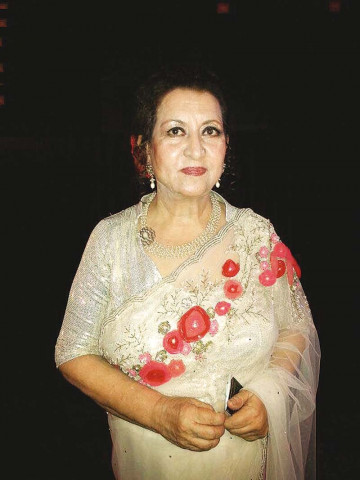
The music virtuoso holds that Pakistan is fertile ground for music as an art form. PHOTO: ADNAN LODHI/EXPRESS
Be it with her playful request to smile once in Ek Baar Muskara Do or cross all limits in awargi, Munni Begum has won the hearts of music lovers across the world. Only a few possess a vocal tone as unique as hers and the ability to sing like they’re telling a story. Boasting a career brimming with milestones, she continues to pursue her passion for music but keeps mainstream appearances at bay.
“Music is my passion,” said Munni. “I’ve devoted my life to the field and will continue singing till the end. But these days, I just sing privately and have no plans of singing for film so far. I have had a fitting career in music and have achieved a lot,” she added. The ghazal singer revels in how far the local music industry has come despite challenges. “There has been no systemic development of music in Pakistan, but we’ve still dominated the profession across the world, purely on the basis of talent. People acknowledge our musicians the world over,” she stated.
Read: Muni Begum wants more funds for artistes

Munni is happy to see the growing trend of Pakistani musicians gaining ground in India. Although she admitted that in comparison with Pakistan, India has done a lot more to promote local music, she holds that Pakistani music is unparalleled in a few genres. “People the world over know that no one can sing classical music better than Pakistani singers,” she noted. “Today, Rahat Fateh Ali Khan, Atif Aslam and Amanat Ali have proved their mettle across the border to the point that India couldn’t help but offer a platform to our artists.” Particularly impressed with Amanat’s singing chops, Munni recommended budding musicians to keep apace with developments in music and always bear in mind the milestones Pakistanis have achieved in music over time.
The music virtuoso feels that Pakistani singers are especially doing a commendable job in Bollywood and this is because our “country is fertile ground for music as an art form.” But she lamented how budding singers don’t realise the importance of seeking formal training to hone their singing skills. “Back in the day, we used to pay respect to our teachers, but the youth these days want to venture into singing without receiving guidance. It’s difficult to sing without possessing knowledge of music, but I’m pleasantly surprised to see a host of good emergent singers in Pakistan,” she said.
Read: Hariharan in awe of Pakistani ghazal talent
Since Munni was a child, she had a penchant for learning how to sing, and soon began taking music lessons from Ustad Khwaja Ghulam Mustafa Warsi. She studied at a music school for three years and launched her singing career in Karachi in the 1970s. She released her first ghazal album in 1976, which shot her to fame. “When I set foot in the industry, it was rife with competition, but I just focused on my work and chose a unique style of ghazal singing. I’m thankful that my country has acknowledged my services,” said Munni, who is credited with being the recipient of the Pride of Performance Award.

Mother of three, Muniba, Minara and Asad, Munni now prefers to spend time with her family. “No one else in my family adopted music as a profession,” she shared. Now settled in the United States, she has long been lauded as one of the best ghazal singers in the country. Among her iconic ghazals are Tumhare Shehar Ka Mausam and Awargi Main Had Se Guzar Jana Chahiye.
Published in The Express Tribune, August 29th, 2015.
Like Life & Style on Facebook, follow @ETLifeandStyle on Twitter for the latest in fashion, gossip and entertainment.



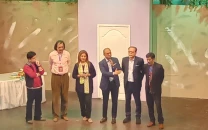
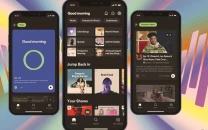
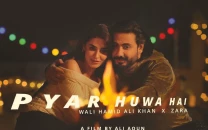
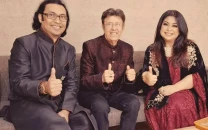












COMMENTS
Comments are moderated and generally will be posted if they are on-topic and not abusive.
For more information, please see our Comments FAQ